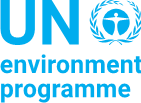Building climate resilience in the landscapes of Kigoma region, Tanzania
In the Republic of Tanzania’s Kigoma Region, climate data show more frequent and unpredictable periods of heavy rainfall causing an increase of flood events. Dry spells are also expected to increase in frequency and severity. Coupled with the rise in average temperatures, this puts immense pressure on Kigoma’s already limited surface water resources. Consequently, both the refugee and host communities in the area face significant threats to their livelihoods since they rely on rainfall to deliver ecosystem goods and services. Given the existing humanitarian and environmental challenges in the region, Kigoma lacks the necessary tools and resources to effectively tackle climate challenges.
This project bridges the gap between efforts in development, humanitarian, and climate by adopting an integrated landscape-level approach that addresses the distinct climate adaptation requirements of both host communities and refugees residing in Kigoma. The key components of the project span from creating land use plans, rehabilitating degraded ecosystems to mainstreaming climate change adaptation measures into the region’s developmental plans and policies. Directly benefitting over half a million of the most-vulnerable people, the project will ensure the long-term sustainability of the communities through clear land-use demarcation, increased provision of ecosystem services and land productivity, increased water availability for irrigation during dry periods and improved food security through improved crop production.
Project timeline
Pipeline
10 May 2019 • 1630 days
Concept note received
10 May 2019
Funding proposal received
24 Jan 2020
Cleared by GCF Secretariat
17 Dec 2020
Legal opinion on AE's Internal Approval
25 Sep 2023
Cleared by iTAP
03 Oct 2023
Approved
25 Oct 2023 • 177 days
Approved by GCF Board
25 Oct 2023
FAA executed
25 Oct 2023
Under implementation
18 Apr 2024 • 596 days so far
FAA effective
18 Apr 2024
Disbursement - USD 1,400,366
05 Aug 2024
To be completed
18 Apr 2029 • 1,231 days to go
-
Financing
- Private sector
- Public sector
-
Size
- Micro
- Small
- Medium
- Large
GCF financing7% disbursed
| Instrument | Amount |
|---|---|
| Grant | USD 19,007,353 |
| Total GCF Financing |
|---|
| USD 19,007,353 |
Co-financing
| Co-financer | Instrument | Amount |
|---|---|---|
| Co-Financing | In-kind | USD 4,611,293 |
| Total Co-Financing |
|---|
| USD 4,611,293 |
GCF Contacts
General media inquiries
GCF CommunicationsSend e-mail
Request for information
GCF Information DisclosureRequest information about this project
Project complaints and grievances
GCF Independent Redress Mechanism (IRM)Phone +82 32 458 6186 (KST)
File a complaint
Integrity issues
GCF Independent Integrity Unity (IIU)Phone +82 32 458 6714 (KST)
Send e-mail
Entity

United Nations Environment Programme
GCF Coordinator, Policy and Programme Division
United Nations Environment Programme, United Nations Avenue, Gigiri, P.O. Box 30552 Nairobi, Kenya, Nairobi, Kenya
More contacts
National Designated Authority
Vice President's Office
Permanent Secretary
Principal Forest Officer, UNFCCC National Focal Point
Documents
| Title | Type | Date |
|---|---|---|
| 2024 Annual Performance Report for FP218: Building climate resilience in the landscapes of Kigoma region, Tanzania | Annual Performance Report | 04 Apr 2025 |
| Building climate resilience in the landscapes of Kigoma region, Tanzania | Approved funding proposal | 24 Nov 2023 |
| Gender action plan for FP218: Building climate resilience in the landscapes of Kigoma region, Tanzania | Gender action plan | 25 Oct 2023 |
| Gender assessment for FP218: Building climate resilience in the landscapes of Kigoma region, Tanzania | Gender assessment | 25 Oct 2023 |
| Environmental and social safeguards (ESS) report for FP218: Building climate resilience in the landscapes of Kigoma region, Tanzania | Environmental and Social Safeguards report | 06 Sep 2023 |